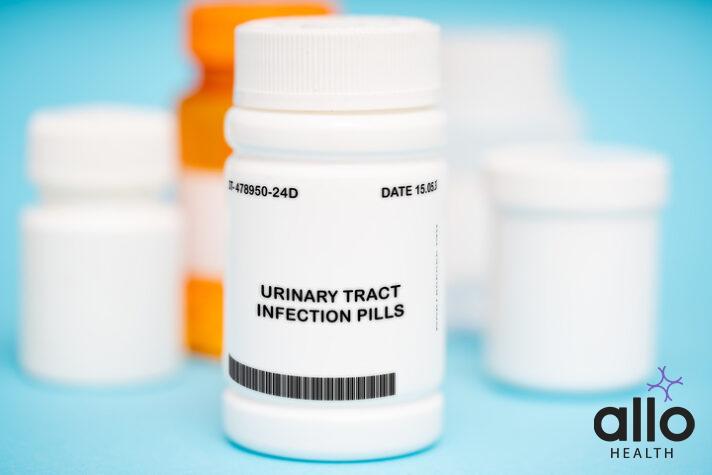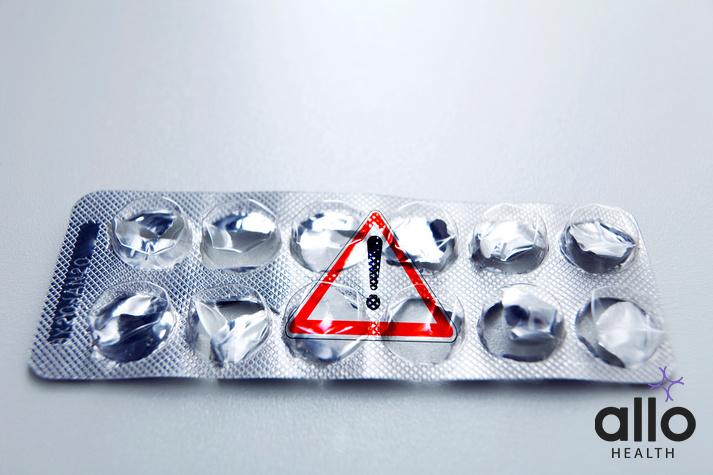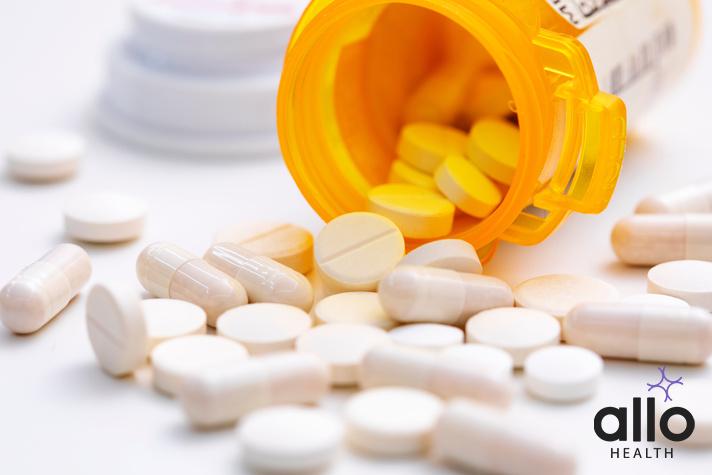Guide to Niftas: A Potent Medication for Treating UTIs

"The following blog article provides information about a drug or brand name drug and its potential effects or benefits. However, it is crucial to understand that this information is intended for general educational purposes only and should not be considered a substitute for professional medical consultation. It is highly recommended to consult with a qualified healthcare professional before making any decisions regarding medication, treatment, or healthcare management.
Book consultation
Individuals have unique medical conditions, and the information provided in this article may not be applicable to everyone. Only a qualified healthcare provider can evaluate your specific medical situation, taking into account your medical history, conducting appropriate tests, and providing personalized advice and recommendations. They are equipped to make informed decisions tailored to your individual needs.
It is crucial to emphasize that self-diagnosis, self-medication, or disregarding medical advice can have serious health consequences. This article may reference specific brand names or drugs for illustrative purposes. Mention of these names does not imply endorsement, recommendation, or guarantee of their efficacy or safety. The choice of medication should be based on discussions and individualized guidance from a healthcare professional who has a comprehensive understanding of your medical condition.
"Urinary tract infections (UTIs) are a common yet painful ailment that affects millions of people worldwide each year. As one of the most frequent bacterial infections, UTIs can disrupt daily life, causing discomfort, pain, and frequent urges to urinate. Treating these infections effectively and promptly is crucial to avoiding complications and ensuring the well-being of affected individuals. One such medication that has proven to be a potent weapon in the battle against UTIs is Niftas. In this comprehensive guide, we will delve into the world of Niftas, exploring its uses, side effects, dosage recommendations, and frequently asked questions.
As we explore the ins and outs of Niftas, an over the counter medication, we’ll also address common concerns and interests, ensuring that both healthcare professionals and patients have the information they need to make informed decisions about this powerful medication.
Now, let’s take a look at Niftas and its essential role in the treatment of urinary tract infections.
What is Niftas and How Does it Work?
Niftas (nitrofurantoin) is an oral antibiotic medication used to treat urinary tract infections caused by susceptible bacteria. It belongs to a class of drugs known as nitrofurans, which are effective in combating a wide range of Gram-positive and Gram-negative bacteria, including Escherichia coli, Staphylococcus saprophyticus, and other common UTI-causing organisms.
Niftas works by inhibiting bacterial DNA synthesis, ultimately leading to the destruction of the bacterial cell. Its unique mechanism of action allows it to concentrate in the urinary tract, ensuring that the medication reaches the infection site in high concentrations. As a result, Niftas is particularly effective in treating UTIs and preventing their recurrence.
Indications for Niftas: Who Should Use it?
Niftas is indicated for the treatment of acute, uncomplicated urinary tract infections, as well as recurrent UTIs in patients who have not responded to other forms of treatment. It is also used as a prophylactic agent in patients who are prone to developing UTIs due to factors such as urinary retention, incomplete bladder emptying, or the use of urinary catheters. It is not used to treat cold, flu or any other viral infection.
Before prescribing Niftas, healthcare professionals must consider the patient’s medical history and medical conditions, potential allergies, and the susceptibility of the causative organism to ensure that the medication is the best choice for the individual.
Proper Niftas Dosage and Administration
Niftas is available in tablet form and is typically prescribed as a 100 mg dose taken orally, twice daily, with a glass of water. The duration of treatment can vary depending on the severity of the infection and the patient’s response to the medication but generally ranges from 7 to 14 days.
Follow the prescribed dosage and complete the full course of treatment, even if symptoms improve before the medication is finished. This helps to ensure that the infection is completely eradicated and reduces the risk of developing antibiotic resistance.
Possible Niftas Side Effects

As with any medication, Niftas can cause side effects in some individuals. Common side effects include:
- Nausea
- Stomach upset
- Loss of appetite
- Vomiting
- Diarrhea
- Headache
- Dizziness
If you notice these side effects, it’s advised that you avoid working heavy machinery or any tasks that require mental alertness. If these side effects persist or worsen, patients should consult their healthcare professional. In rare cases, Niftas may cause more serious side effects such as:
- Severe abdominal pain
- Unusual bruising or bleeding
- Persistent sore throat
- Signs of an allergic reaction (e.g., skin rash, itching, swelling, difficulty breathing)
If any of these serious side effects occur, patients should seek immediate medical attention.
Precautions and Contraindications:
As with any medication, there are precautions and contraindications that need to be taken into account before using Niftas. Some of the precautions and contraindications of Niftas include:
- Allergic reaction: If you are allergic to Niftas or any other antibiotic medication, it is essential to inform your healthcare provider before taking Niftas.
- Liver or kidney disease: Patients with liver or severe kidney disease and electrolyte imbalance should use Niftas with caution, as this medication may exacerbate their condition.
- Pregnancy and breastfeeding: Pregnant women or breast feeding women should not take Niftas without first consulting their healthcare provider.
- Other medications: Niftas may interact with certain medications, including blood thinners and antacids. It is important to inform your healthcare provider of all medications, supplements, and vitamins you are taking before starting Niftas.
- Children: The safety and effectiveness of Niftas in children have not been established, and therefore, it is generally not prescribed for children.
Follow your healthcare provider’s instructions and advice when taking Niftas to ensure its safe and effective use.
Drug Interactions to be Aware of:
Niftas may interact with other medications, potentially affecting their efficacy or increasing the risk of side effects. Some common medications that can interact with Niftas include:
- Antacids containing magnesium trisilicate
- Probenecid
- Oral contraceptives
Patients should inform their healthcare professional about all the medications they are taking, including prescription drugs, over-the-counter medications, and herbal supplements, to minimize the risk of drug interactions.
Niftas for Sexual Health

Niftas is an antibiotic medication commonly used to treat urinary tract infections caused by bacteria. Urinary tract infections can sometimes be caused or aggravated by sexual activity. In these cases, Niftas can be prescribed to treat the UTI, which may improve overall sexual health by reducing discomfort and pain during intercourse.
Antibiotics such as Niftas can sometimes disrupt the natural balance of bacteria in the body, including the vaginal microbiome in women. This can potentially lead to an overgrowth of yeast and cause a yeast infection, which may affect sexual health.
If you experience any symptoms of a UTI or yeast infection, seek medical attention and follow your healthcare provider’s instructions for treatment. Along with this, practicing safe sex and good hygiene habits can help prevent the occurrence of UTIs and other infections.
Read more about UTI and sex here.
Key Takeaways
- Urinary tract infections (UTIs) can be painful and disruptive.
- Niftas is a powerful antibiotic medication used to treat UTIs caused by susceptible bacteria.
- It is important to understand its uses, dosage, side effects, and potential drug interactions.
- Consult a healthcare professional for a proper diagnosis and treatment plan if you suspect a UTI or experience unusual symptoms.
- Timely intervention and adherence to the prescribed treatment regimen are crucial for successful recovery and prevention of UTI recurrence.
Frequently Asked Questions
Q: Can I drink alcohol while taking Niftas?
A: It is generally recommended to avoid alcohol consumption while taking Niftas, as it may worsen certain side effects like dizziness and nausea.
Q: Is it safe to take Niftas 100 mg tablet during pregnancy or breastfeeding?
A: Niftas should only be used during pregnancy if the potential benefits outweigh the risks. It is not known whether Niftas is excreted in breast milk. If you are a pregnant women or breastfeeding, consult your healthcare professional before using Niftas.
Q: What should I do if I miss a dose of Niftas?
A: If you miss a dose of Niftas, take it as soon as you remember. If you have missed a dose of the medication and your next dose is almost due, it is advisable to skip the missed dose and resume your regular dosing routine. Do not take a double dose to make up for the missed one.
Q: Does Niftas 100 mg tablets have side effects?
A: Niftas is a medication used to treat urinary tract infections. It may cause mild side effects such as nausea, or diarrhea in some individuals. Loss of appetite may also occur for some individuals. However, serious side effects are rare but can include allergic reactions or liver problems.
Q: Can I take Niftas if I have kidney problems?
A: Patients with kidney problems may require a lower dose or more frequent monitoring by their healthcare professional. Always inform your doctor about any pre-existing kidney conditions before starting Niftas.
Q. What are the uses of niftas 100 mg?
A: Niftas 100 mg is commonly used to treat urinary tract infections caused by susceptible bacteria and to provide relief from associated symptoms such as pain, frequent urination, and urgency.







































